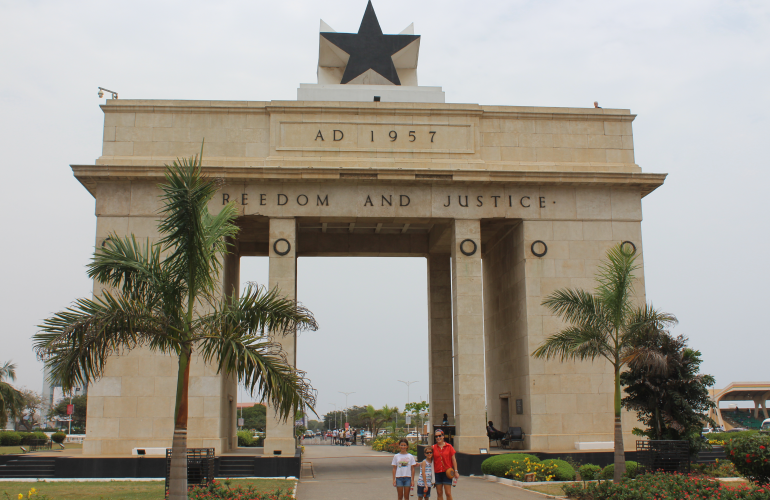
The 1948 riots and 1951 elections marked decisive moments in Ghana’s independence struggle, paving the way for freedom in 1957.
Key Events in Ghana’s Independence Struggle: The 1948 Riots, 1951 Elections, and Beyond
Ghana’s journey to independence was not a sudden event but rather a series of critical moments that built momentum and inspired collective resolve. The Gold Coast, as the nation was then known, had endured decades of colonial rule under Britain. By the mid-20th century, a combination of social, political, and economic pressures made it increasingly clear that change was inevitable. Among the many turning points in this struggle, the 1948 riots and the landmark 1951 elections stand out as defining chapters in the march toward independence.
The Background: Tensions Under Colonial Rule
Life under British colonial administration was marked by inequality. While European traders and settlers benefitted from the colony’s resources—particularly cocoa and minerals—many Ghanaians faced economic hardships. Returning World War II veterans, who had fought valiantly for the British Empire, came home to unemployment and inadequate recognition of their sacrifices. Urban workers struggled with rising prices and limited opportunities, while farmers felt the sting of unfair trade practices. Discontent was growing, and the stage was set for confrontation.
The 1948 Riots: A Spark for Change
The events of February 1948 became a turning point in Ghana’s independence movement. On February 28, a peaceful march of ex-servicemen in Accra was brutally suppressed by colonial police, resulting in the shooting deaths of three veterans. This tragedy ignited widespread anger across the colony. Riots broke out in Accra and other towns, with shops looted, strikes organized, and clear demands for self-governance voiced.
The British authorities, alarmed by the unrest, arrested six leading nationalist figures—later known as the “Big Six”: Kwame Nkrumah, J.B. Danquah, William Ofori Atta, Emmanuel Obetsebi-Lamptey, Edward Akufo-Addo, and Ebenezer Ako-Adjei. Instead of silencing the movement, however, these arrests amplified it. The Big Six became symbols of resistance, their detention highlighting the injustices of colonial rule.
The 1951 Elections: The People’s Voice
The 1948 riots forced Britain to reconsider its approach to governance in the Gold Coast. The Watson Commission, set up to investigate the causes of the unrest, recommended sweeping political reforms. This led to the drafting of a new constitution by Sir Henley Coussey, which expanded African representation in government.
In 1951, the Gold Coast held its first general elections under the new constitution. The Convention People’s Party (CPP), founded by Kwame Nkrumah only two years earlier, swept to victory, winning a majority of seats. Remarkably, Nkrumah himself contested the election while still in prison, and his victory underscored the overwhelming desire of the people for self-rule.
The elections marked the first real transfer of power into the hands of Ghanaians. Although Britain still retained control over key aspects of governance, the CPP’s triumph signaled that the days of colonial dominance were numbered.
The Road Ahead: Momentum for Independence
The 1951 elections did not deliver independence immediately, but they shifted the balance of power in favor of the nationalist movement. Nkrumah, released from prison to take up his role as Leader of Government Business, became the face of a new political era. His charisma, combined with the CPP’s grassroots support, energized the independence struggle further.
Over the next few years, additional constitutional reforms were enacted, gradually expanding local authority and limiting British control. By 1956, the CPP had once again secured a landslide victory in elections, leaving no doubt about the people’s will. On March 6, 1957, Ghana became the first sub-Saharan African nation to achieve independence, with Nkrumah as its first Prime Minister.
Why These Moments Still Matter
The 1948 riots and the 1951 elections remind us that independence was won not by a single event but through a series of struggles, sacrifices, and acts of courage. The veterans who marched for recognition, the civilians who risked their lives during the riots, and the voters who placed their trust in the CPP all contributed to shaping Ghana’s destiny.
These moments also highlight the power of collective action. Ordinary men and women, united by a common vision of freedom, transformed their grievances into a movement that inspired not only Ghana but the entire African continent.
Conclusion
Ghana’s independence story is one of resilience and determination. The 1948 riots exposed the brutality of colonial rule, while the 1951 elections showed the undeniable will of the people. Together, they laid the foundation for a historic victory in 1957 that continues to inspire generations. Ghana’s struggle reminds us that freedom is rarely given—it is fought for, demanded, and ultimately claimed by those who believe in a better future.
RECOMMENDED ARTICLES
- Edward Akufo-Addo: Lawmaker & Founding Father
- Akan Day Names: Identity in Every Birth
- Ewe Cuisine: Akple, Fetri Detsi & Stews
- Damba Festival: Celebrating Northern Ghana’s Rich Cultural Heritage
USEFUL LINKS
